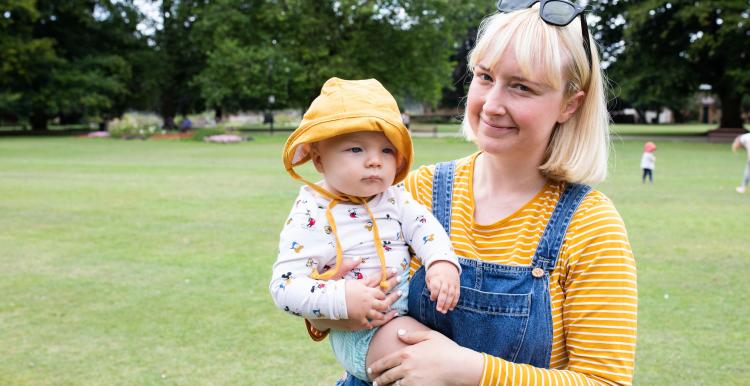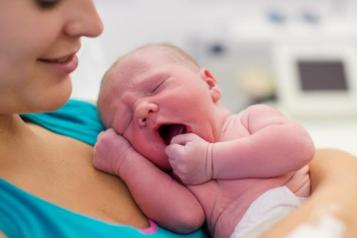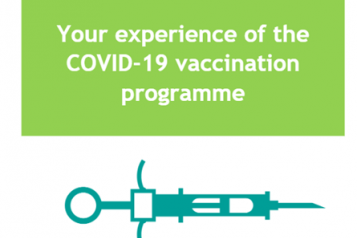Maternity support during COVID-19

Last updated on 18 May 2021
Restrictions related to the COVID-19 virus in England have begun to ease as part of the roadmap out of lockdown. To check the latest Government guidance please visit Gov.uk.
If you're pregnant, it's important you:
-
wash your hands regularly
- take particular caution when meeting anyone outside your household or support bubble.
- stay away from anyone who has symptoms of coronavirus
You still need to go to all of your pregnancy (antenatal) scans and appointments unless you're told not to.
How does coronavirus affect pregnancy?
According to the NHS, it's expected that most pregnant women will experience mild or moderate cold or flu-like symptoms if you have COVID-19.
There is no evidence to suggest being pregnant means you're more likely to get coronavirus, or that the coronavirus can be passed to your baby while you are pregnant or during labour and birth. However, for a small number of women, it does mean being pregnant may change the way their body handles severe viral infection.
If you're pregnant and have an underlying health condition, such as asthma or diabetes, there is a further risk that you may be more unwell if you develop the virus.
Although the advice to shield has now ended, if you have significant heart disease, congenital or acquired, you are considered extremely vulnerable and are advised to take extra precautions by following the government advice and guidance.
Tell us about your experience of maternity care
Has your maternity care been disrupted by COVID-19? Whether it’s good or bad, we want to hear from you.
It only takes five minutes and your feedback can help NHS and social care services understand the steps they can take to improve care for you and your loved ones.
Can I receive the COVID-19 vaccine if I am pregnant?
The Joint Committee on Vaccination and Immunisation (JCVI) has advised that pregnant women should be offered COVID-19 vaccines at the same time as people of the same age or risk group.
In the USA, around 90,000 pregnant women have been vaccinated mainly with Pfizer and Moderna vaccines and no safety concerns have been identified. There is also no evidence to suggest that COVID-19 vaccines affect fertility.
Anyone who has already started vaccination and is offered a second dose whilst pregnant, should have a second dose with the same vaccine unless they had a serious side effect after the first dose.
Has COVID-19 affected the care I should expect?
With NHS services changing the way they work in response to COVID-19, some people who are currently expecting children have told Healthwatch that they are concerned that about going into hospital during the current outbreak and that there is not enough support for them to give birth at home.
The NHS has written to services reminding them that they need to:
- Be in regular contact with all women receiving antenatal and postnatal care.
- Make clear to women how to access maternity services for scheduled and unscheduled care.
- Encourage them to raise any concerns so that the maternity teams can advise and reassure women of the best and safest place to receive care.
If you are worried you should contact the service who is supporting you to understand the support available and to discuss your concerns.
When I went to my first scan I saw how quiet it was and the staff were so friendly - it made me feel much better, but I do still think that the NHS could do more to support people that are having a baby. I was able to take my husband to a private scan, we both had masks on, we both kept our distance from people and he sat away from me when I had the scan itself. I think the NHS should consider this, especially for first time parents and for people who have severe anxiety.
— Public feedback from a prospective first time mother
What is the government’s advice for pregnant women?
Pregnant women have been included in the list of people at moderate risk (clinically vulnerable). Although national shielding has now ended, you may be advised once again to shield. In the meantime, it's important you follow the government advice on coronavirus.
Follow the hygiene advice
There are general principles you can follow to help prevent the spread of respiratory viruses such as COVID-19, including:
- Washing your hands more often - with soap and water for at least 20 seconds or use a hand sanitiser when you get home or into work, when you blow your nose, sneeze or cough, eat or handle food.
- Avoid touching your eyes, nose, and mouth with unwashed hands.
- Avoid close contact with people who have symptoms.
- Cover your cough or sneeze with a tissue, then throw the tissue in a bin and wash your hands.
- Clean and disinfect frequently touched objects and surfaces in the home.
Keeping yourself and others safe
With restrictions easing across the UK it is important that you take particular care when meeting anyone outside your household or support bubble. You should read the government guidance but the steps you should be following as much as possible include:
- Meet outside rather than inside where possible
- Continue to minimise the number of people you meet within a short period of time to limit the risk of spreading coronavirus
- Try to keep 2 metres apart from people that you don’t live with (unless you have formed a support bubble with them), this includes friends and family you don’t live with.
- Get tested twice a week for free and isolate if you are positive
- Continue to work from home if you can. Your employer should support you to do this.
- Avoid contact with someone who is displaying COVID-19 symptoms of coronavirus, such as a high temperature and/or new and continuous cough and/or a loss or change to their sense of smell or taste.
- Get vaccinated when you are offered it, and encourage others to do so as well
What should pregnant women do if they have coronavirus symptoms?
If you get any symptoms of coronavirus (a high temperature, a new, continuous cough or a loss or change to your sense of smell or taste):
- Stay at home (self-isolate) – you and anyone you live with should not leave your home or have visitors. Anyone in your childcare or support bubble should also self-isolate if you've been in close contact with them since your symptoms started or during the 48 hours before they started.
- Book a test – get a PCR test to check if you have coronavirus as soon as possible. Anyone you live with, and anyone in your support bubble, should also get a PCR test if they have symptoms.
- Speak to your midwife or maternity team – they will advise you what to do. You may need to rebook some of your pregnancy appointments or have them online, by phone or as a video consultation.
Should pregnant women attend antenatal appointments?
- If you are well, it’s important that you still attend your antenatal appointment. If you are displaying symptoms of COVID-19, contact your community midwife to postpone your appointment until the self-isolation period is over.
- If you are due a routine scan or visit, check with your maternity unit for advice as you may still need to attend.
- If you are asked to attend a scan or an appointment, you should go.
Can someone come with me to my appointment?
The latest advice from the NHS to hospitals is that a partner or another chosen person should be allowed to accompany you all key appointments and scans. Your partner or chosen person may be required to have a negative COVID-19 test (or provide evidence of a negative test result from home) before visiting you on antenatal or postnatal wards.
This includes a birth partner who can be present with you during labour, birth and the immediate postnatal period.
Mental health advice for pregnant women
More than 1 in 10 women develop a mental health issue during pregnancy or after giving birth. Pandemics, like coronavirus, are likely to cause anxiety. If expectant and new parents are worried about their mental wellbeing, they can get support from range of different organisations and charities. The Maternal Mental Health Alliance has an updated list of organisations that parents can contact during coronavirus.
Got another question?
As well as the advice available from the NHS, Government and charities the Royal College of Obstetrics and Gynaecology has also produced a detailed COVID-19 Q&A for pregnant women and their families covering:
- General advice.
- Getting antenatal care.
- Child birth choices and birth partners.
- Having a COVID-19 infection or suspected infection.
- The period after birth.


